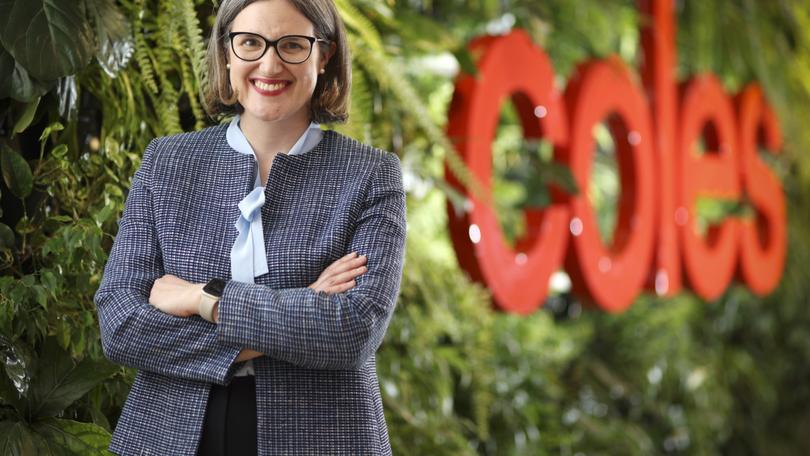The once-a-week supermarket shop is in decline. Here’s what Coles and Woolworths expect next
SPECIAL REPORT: If you head to the supermarket once a week for a big shop, you’re one of a declining number doing so. The once weekly ritual is in decline, and here’s how the big two expect things will change.
The once-ritualistic weekly trip to the supermarket for a large grocery shop is on the decline and there’s little to suggest that will change.
Instead, the average number of weekly trips to the supermarket is approaching three, and Australians, according to Coles research, visit an average of 2.8 different branded supermarkets a month. Nearly one in five of us visit at least four.
The supermarkets and other analysts believe there are several factors at play — the ageing and growing buying power of a digitally-native generation, a greater proportion of smaller households and a concerted push to make the dollar stretch, driven by increasing choice.
Sign up to The Nightly's newsletters.
Get the first look at the digital newspaper, curated daily stories and breaking headlines delivered to your inbox.
By continuing you agree to our Terms and Privacy Policy.“There is no reason to believe consumers will become less savvy than they are today,” Woolworths told the Australian Competition and Consumer Commission; alongside Coles, it has urged the watchdog to ensure its inquiry into the sector is future-facing and fact-based, considering the current and future state of play.
Coles pointed to a near-doubling in its capacity for direct-to-boot delivery and next-day delivery since 2018, and the rapid scale-up for same-day and rapid delivery with partners such as Door Dash and Uber Eats.
About 700 Coles stores are now on rapid delivery apps and expects growth will continue unabated, citing evidence from the UK, where in 2021 immediate delivery was up to 7 per cent of UK sales, and as much as 15 per cent in London.

“Younger consumers are inclined to use online alternatives and (so) those between the ages of 35 to 55, typically with younger families, who have the most constraints on time,” Coles told the ACCC.
Woolworths expects digital app usage to keep growing, while platforms and comparison sites will allow increased switching between retailers, by “allowing consumers to easily, instantly find and compare prices as they plan their shop in-store or shop online”. Woolies boss Brad Banducci said earlier this month a growing group of customers are starting their shopping online and coming into store later.
Those younger customers and time-poor families are also looking at meal kit delivery options, which have grown in recent years and for the most part can allow customers to bypass supermarkets.
Coles said many of its supermarkets now feature dedicated convenience meal spaces, which it said was also common in Aldi, Woolworths and many IGA stores. Woolworths last month launched a new range of 35 “dine in” meals being trialled in 100 stores in NSW and Victoria. All are designed to be cooked within 35 minutes and are air-fryer friendly.
Woolworths since July last year has recorded double-digit sales growth in prepared meals, noting they were now a far cry from the bland microwave meals of the past.
Woolworths told the regulator alternative meal providers were growing their “share of stomach” and “present key competitive alternatives for the customer to respond to the daily question of ‘what’s for dinner?’”
Woolworths has dialled up its smaller format Metro stores which specialise in pre-prepared meals and ready ingredients, with more than 90 now across Sydney, Melbourne, Canberra and Brisbane. Coles now has more than 20 Local formats nationally.
“Supermarkets must deliver healthier, better tasting and better value options for customers that cater to a range of health and dietary needs, such as food suitable for allergies or intolerances, meal solutions that are suitable for vegetarian, vegan, low carb, high protein or low calorie diets, or food that is certified organic,” Coles said, adding its “health in every aisle” plans would mean customers see gluten-free pasta in the pasta aisle as it switched mainstream health products out of the health food aisle.

The digital revolution is also changing how the big supermarkets get groceries to shoppers. Coles is expected to open robot-controlled order fulfilment centres in Sydney and Melbourne within the next 18 months, while Woolworths recently took over rapid delivery service Milkrun, which pledges delivery within 60 minutes. It has also installed ripening rooms for bananas and avocados to ensure better product quality.
Fruit and vegetable industry analysts Freshlogic say more food shopping trips each week means smaller quantities are in each basket.
This also supports the push for prepared and packaged vegetables, they say, particularly as smaller households do not need as much food and people generally are averse to food waste — particularly with cost-of-living pressures.
On the flip-side, shoppers who do need larger portions are now finding their way to local greengrocers and markets, which have about 20 per cent share of the market, Freshlogic reports. Average purchase quantity for hard-cooked vegetables like potato, carrot and pumpkin is 25 to 30 per cent higher there than at supermarkets.
Woolworths maintains price is the top ranking reason driving customers to choose where to shop.
“The vast majority of customers who have a Woolworths in their local area will also shop at Coles, IGA, and Aldi in a given year and at least one in six customers who shop at Woolworths will shop at another major supermarket on the same day,” it said.
The choice argument — one the supermarkets are increasingly talking about, seemingly concerned policymakers are not listening or are wilfully ignoring the evidence — is borne out in surveys and research the big two conduct.
Customers are more willing to “cross-shop” to find what they want at the best possible price — and, as Coles boss Leah Weckert has explained this year, merely being the closest big supermarket isn’t enough any more. Online research does make ability to cross-check prices much easier, compared to the 1980s and 90s era of poring over printed catalogues.
“Convenience is perhaps not as important as it was previously,” Ms Weckert said in February, referencing shopping trips where customers “were willing to hop in the car to go to places where they knew they could get good value on certain items”.
On Coles and Woolworths’ view, their competitors range from IGA to Bunnings to The Reject Shop to Chemist Warehouse.
Aldi’s dramatic scale up over the past 16 years means it’s now almost everywhere in Australia, bar the NT and Tasmania. It plans to keep growing, looking at growth corridors in major cities.
Costco — which also wants to add more sites — now has 15 member warehouses across the country, while Amazon is opening new fulfilment and distribution centres and already stocks a large proportion of what shoppers would find in a standard Coles or Woolworths.
Then there are smaller but growing supermarket groups that have also stated growth ambitions: Drakes in South Australia — recently demerged from Metcash — and Harris Farm Markets in NSW have in the past couple of years expanded to Queensland. Spudshed and Farmer Jack’s in WA are also eyeing new opportunities while Victoria’s Ritchies IGA group is now along the east coast and Foodland has a strong market share in SA.
The majors worry serious intervention in the way they operate could affect how they innovate and deliver on customer expectations. With international and local rivals nipping at their heels, it remains to be seen if their fears are well-founded.
The ACCC’s interim report is due in August.
